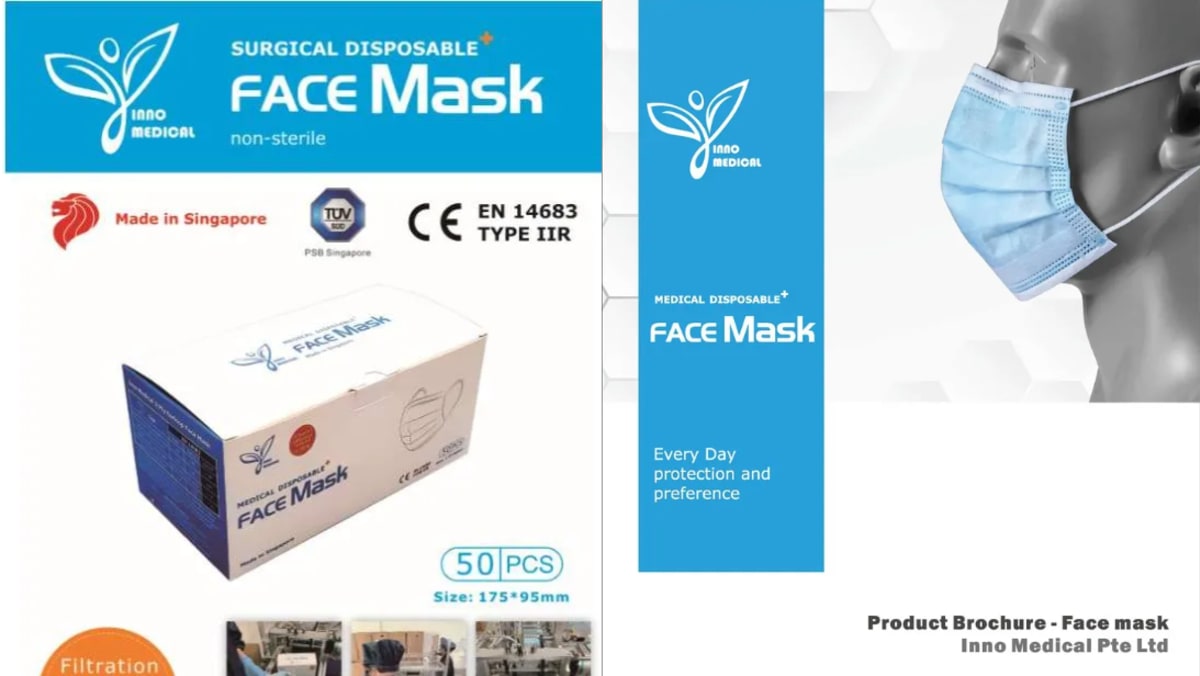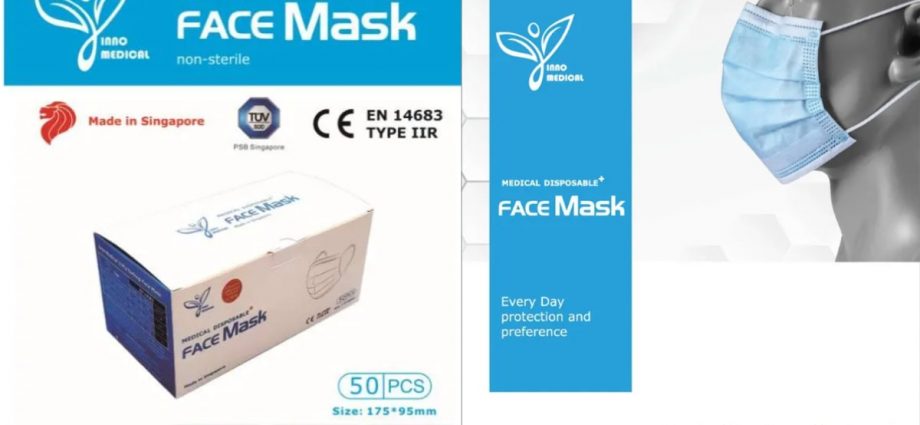
SINGAPORE: A company was fined S$10,000 by a court on Tuesday (Nov 1) for manufacturing more than 2.2 million surgical masks without a manufacturer’s licence.
Inno Medical had failed to apply for the licence for a year due to an “oversight”, the court heard.
A representative for the company pleaded guilty to one charge under the Health Products Act for manufacturing a Class A medical device without a manufacturer’s licence.
The court heard that the company had applied to the Health Sciences Authority (HSA) for a manufacturer’s licence for three-ply surgical masks in late May 2021.
When the authorities looked into the company, they noticed that Inno Medical had claimed to be manufacturing masks since April 2020, even though they did not have a manufacturer’s licence then.
Investigations showed that the masks were being sold on platforms like Shopee. The firm also sold masks to businesses and individuals and the masks were advertised to have a bacterial filtration efficiency of 98 per cent.
In June 2021, the company’s supply of masks was seized and the firm was ordered to remove its supply from shelves and take down online listings.
Inno Medical complied with the orders. The application for a manufacturer’s licence was reviewed and the company’s premises were inspected. They were found to be clean and well-maintained, with workers required to don personal protective equipment before entering the production area.
Further investigations seemed to suggest that the failure to apply for a licence had been an inadvertent oversight on the company’s part.
The licence was granted to the firm in July 2021.
Between June 2020 and June 2021, the firm had manufactured more than 2.2 million pieces of three-ply surgical masks for sale, without a manufacturer’s licence.
The HSA prosecutor sought a fine of S$10,000, saying there was a 12-month period where the firm manufactured masks without a licence.
In mitigation, the representative for the company said the firm has suffered losses as it did not manage to earn as much profit as expected rom the sale of the masks.
He said the masks were sold at low prices and the profits did not cover the costs. He said the price of masks went from S$20 to a few dollars as time went by, while cost of importing materials remained high.
He said he and a former shareholder of the firm would pay the fine and said they had to support their families. He asked for the court to consider their circumstances and impose a lower fine.
The judge said it was a business decision for them to enter the trade of manufacturing masks, perhaps because they were of the view that there was demand.
However, as masks are healthcare-related products, the company had to ensure it complied with relevant regulations and obtained the relevant licensing before carrying out its business, she said.

